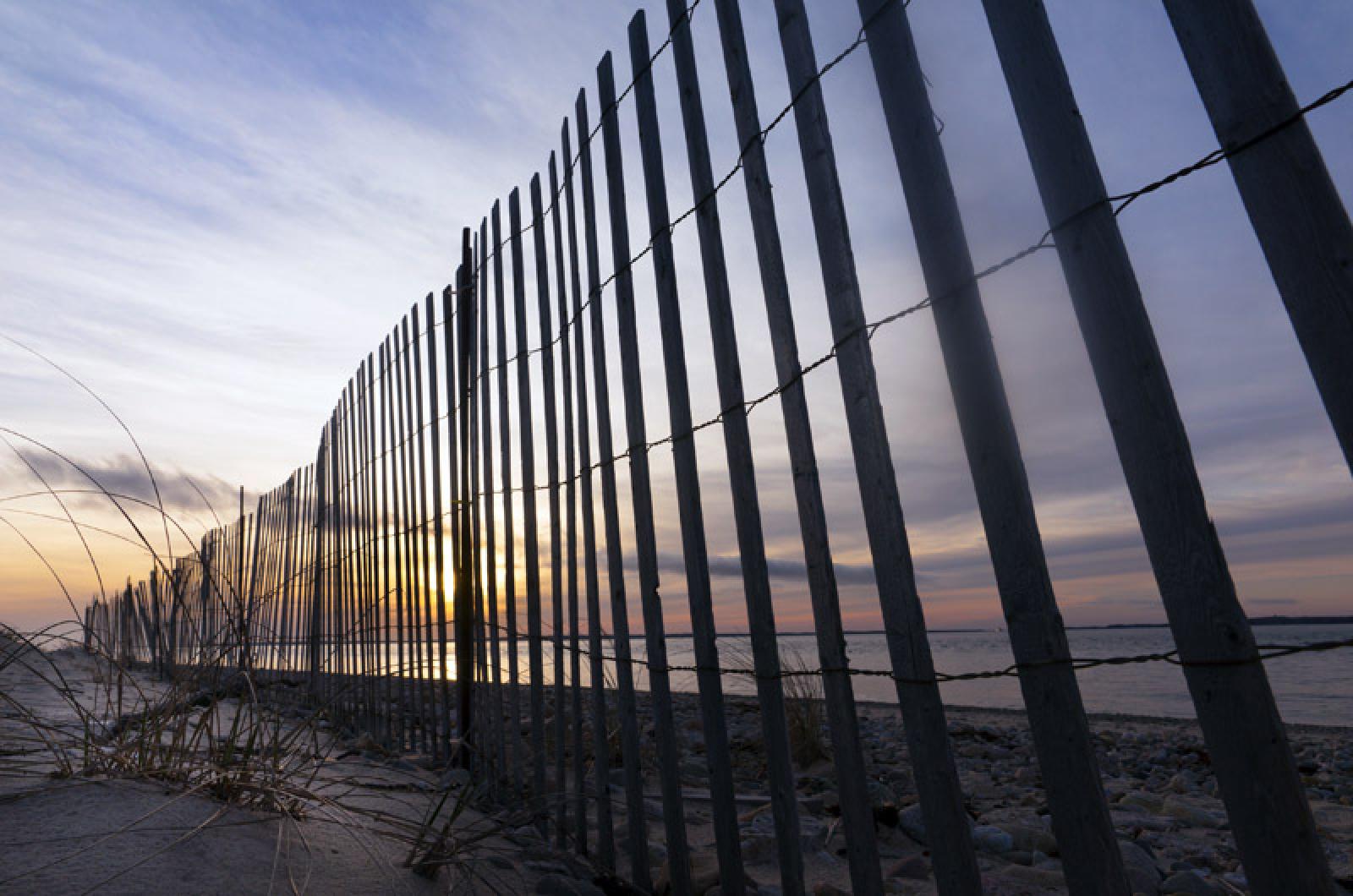Every year on the Vineyard we dispose of millions of plastic shopping bags. Millions. Though they take a variety of paths, almost all eventually end up in the environment. Because thin-film plastic bags are not suitable for recycling (our local haulers don’t even accept them), a large portion simply become noxious gases when they are incinerated with the rest of our trash. This is, sadly, the far better outcome. That’s because the other large portion find their way to the ocean, where they pollute our water, kill or injure wildlife, and even become incorporated into the food we eat.
Some bags reach the ocean quickly and remain more or less intact. They are left at the beach, dropped from a boat or arrive there by the wind. But many others take a more circuitous route, a harrowing journey beginning on the side of the road or stuck in a tree, then broken down by sunlight and battered by physical abuse, and finally picked up by a stream or shredded into particles small enough to enter the groundwater. Either way, whether in the form of large pieces of bags that choke and strangle birds, sea turtles and marine mammals, or the microplastics that collect toxic chemicals and get eaten by the plankton and fish at the base of the food chain, it is unconscionable that the Vineyard contributes so much to ocean pollution. This is an Island, after all.
But wait, you ask, you are ignoring the better destination — what about recycling? After all, “recyclable” is printed right there on the bag.
Unfortunately, in reality this is usually false. Plastic bags are a menace to single-sort recycling systems like ours (and those of most communities), as they routinely become tangled in the equipment and cause costly work stoppages. If you’ve been to a transfer station recently you may have seen the new signs forbidding plastic bags. That’s because the bags are costing them money or costing us money, depending on how you look at it. Locally, we now pay more per ton for recycling than for trash.
It is technically possible to recycle plastic bags (almost anything can be recycled if you try hard enough), but the process is inefficient and expensive, and requires a dedicated pickup and transport system. Depending on your level of cynicism, grocery store bag collection programs could be described as a good way to reduce litter or merely corporate “greenwashing.” Even when municipal programs are included, nationally only one to three per cent of plastic bags are recycled, and there is a limited market for the end product — mostly composite decking boards. Unfortunately, there will never be enough decks and playgrounds in the world to absorb the remaining 97 to 99 per cent of shopping bags, not to mention all the other thin film plastics that aren’t easily recycled.
For the Vineyard Conservation Society, pessimism regarding recycling as the solution to an environmental problem feels strange, almost like a betrayal. Recycling is near and dear to our heart. We helped create the Island’s first recycling center at the West Tisbury dump in 1973, and have worked since then to expand recycling options Island-wide. But even in 1973 we understood that recycling comes third in the now famous phrase “reduce-reuse-recycle” for a reason. Our goal with the Bring Your Own Bag bylaw is to reduce the total amount of plastic we use, so that the other two legs of the stool can handle the rest.
We are sympathetic to the concerns of businesses that would be forced to change their habits for the greater good. And to those (including many VCS members and all of the staff) who reuse their plastic bags for lining trash cans, tossing out diapers or picking up dog poop, we recognize the basic unfairness: you were already doing the right thing. However, with recycling not a realistic solution, and the limited ability of education to change the fact that for every plastic bag that lines a trash can there are many more that get thrown from the window of a car, VCS became convinced about 18 months ago that a ban is necessary.
The proposed bylaw is a narrowly-tailored ban of single-use plastic checkout bags, the common thin film bags that are provided by a business at the point of sale, because these bags are both clearly harmful and there are good alternatives readily available. The goal is to create a strong push toward reusable bags (which is why we call it the Bring Your Own Bag bylaw), but stores would still be allowed to provide paper bags containing at least 40 per cent recycled content. We encourage stores to give a credit to customers who “BYOB” and/or charge for paper bags, but neither is mandatory (state law prevents such mandates). Other plastic bags would be unaffected by the bylaw, such as those used to separate meat or ice cream from other items, or those used before the point of sale such as deli, produce and bulk food bags. The bylaw would not take effect until Jan. 1, allowing businesses to use up old stock.
At this spring’s town meeting, help your town join the 19 others in Massachusetts (and hundreds of communities across the world) that have already passed bag bans. The laws have been proven to work. People increase their use of reusable bags, the predicted dire impacts on businesses never materialize, and post-implementation the bans are popular and inspire nearby towns. Though we respect calls for patience, the time to act is now. One of our smaller grocery stores hands out over half a million disposable plastic bags per year. Every year that we wait, we put millions more plastic bags into the natural environment that sustains our wildlife, economy, health and quality of life.
Jeremy Houser is a biologist and staff member of the Vineyard Conservation Society.




Comments (2)
Comments
Comment policy »